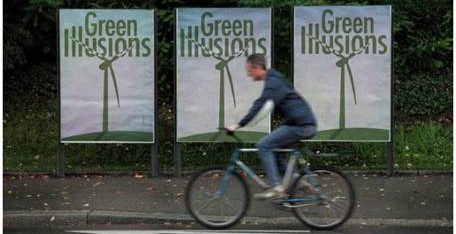To hear automakers and environmentalists tell it, electric vehicles (EVs) are the greenest and cleanest solution to personal mobility. But in his book Green Illusions: The Dirty Secrets of Clean Energy and the Future of Environmentalism, author Ozzie Zehner argues that EVs are more symbolism and marketing than environmental and fossil-fuel saviors. And in many cases, EVs are actually worse for the environment than traditional gas-powered vehicles.
To prove this, Zehner, a visiting scholar at UC Berkeley, points to what he views as the fuel-inefficient process of manufacturing EVs, and claims that they don’t make a big difference in greenhouse-gas emissions. He also contends that electric cars won’t protect the U.S. against future oil price fluctuations, as many claim, and that it’s a fallacy that prices for EVs will fall as the technology matures. He also maligns tax subsidies and government spending that support EV production as misguided. But two well-respected alternative powertrain reporters take issue with most of Zehner’s and the book’s arguments against EVs.
Although an academic, Zehner has deep Detroit-area automotive roots. He attended Kettering University (née General Motors Institute) in Flint and then worked for GM for five years, along with a stint in advanced vehicle development at the company’s Opel division in Europe for three years. Originally from Kalamazoo, Zehner completed grad school at the University of Amsterdam, where he studied the sociology of science and technology. “My research was looking at how technologies are taken up in society — their benefits, limitations and unintended consequences,” he says. “But cars have always remained a big interest of mine.”
http://www.wired.com/images_blogs/autopia/2012/06/Cover-Green-Illusions-sm2.jpg“>
Image: The University of Nebraska Press.
The main focus of the automotive portion of the book is to shift attention away from the amount of fuel used to power EVs once they’re on the road to what’s required to manufacture them. Zehner maintains that the manufacturing of EVs negates their environmental benefits, particularly the mining and processing of the copper, aluminum and rare earth metals used to construct the car. “All of those are very energy-intensive,” Zehner told Wired. “So it ends up taking a lot of fossil fuel to build an electric car.”
To support his point, Zehner notes that aNick Chambers, who has written about EVs for outlets ranging from The New York Times toPlugincars.com, asserts that Zehner’s claim that EVs are much more energy intensive to manufacture is “ridiculous,” and that estimates on how much energy is consumed in their creation are dubious at best.
“The energy intensity for manufacturing anything large like an automobile — electric or not — will be very high,” he says. “If anything, EVs and conventional cars are equally energy intensive during construction and are starting from the same point at the time of delivery. Because of this, the only energy usage numbers that matter in terms of comparison are what happens after delivery of that car — and that’s where EVs win.” Read more http://www.wired.com/autopia/2012/07/green-illusion/













